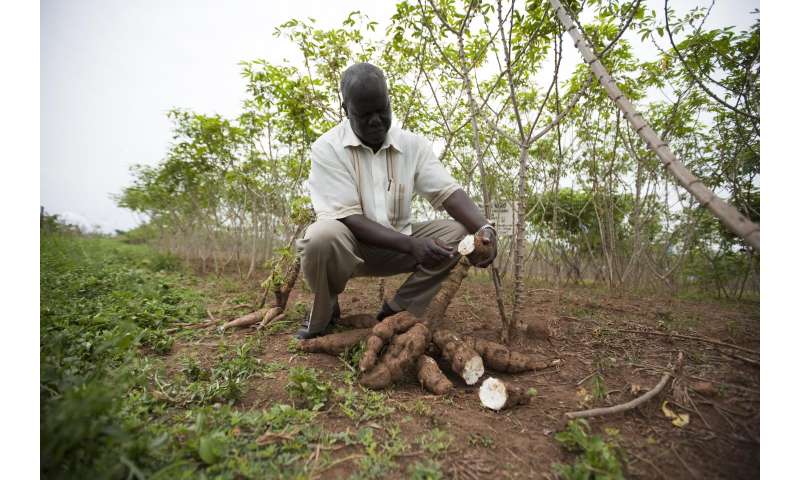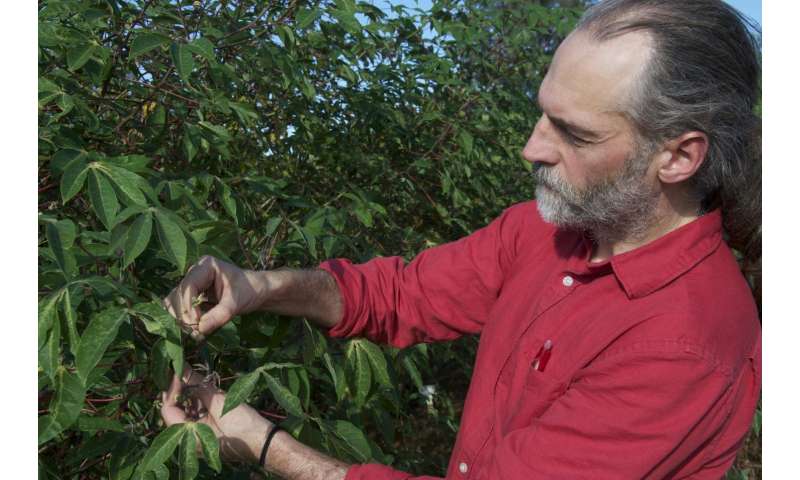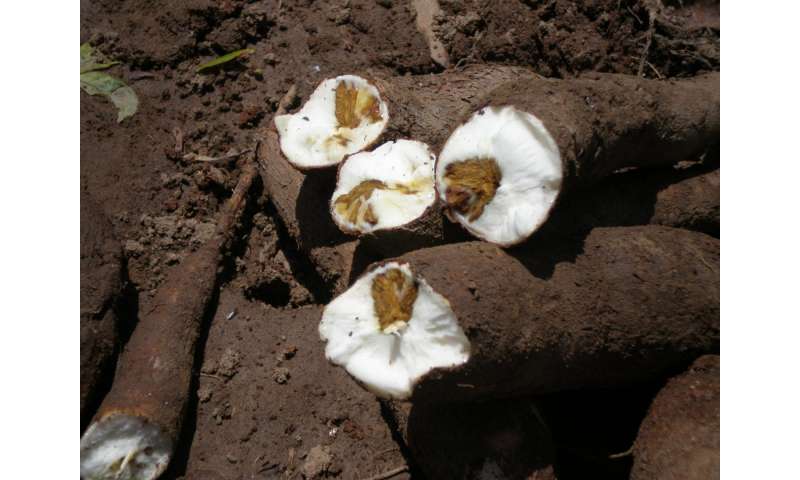International alliance receives grant to improve cassava harvest and nutrition for farmers in Africa

The Donald Danforth Plant Science Center announces that the Virus Resistant Cassava for Africa Plus (VIRCA Plus) consortium of American, Nigerian, Ugandan, and Kenyan institutions recently received a five-year, $10.46 million grant from the Bill & Melinda Gates Foundation to develop disease-resistant and nutritionally-enhanced cassava varieties to improve the livelihoods and health status of African farm families.
Cassava is an important food and cash crop for small-holder farmers in Africa. It is the second most important staple food crop after maize in sub-Saharan Africa. Approximately one-third of the population relies on its starchy tuberous roots for over 50 percent of their daily caloric intake. It grows well in conditions of drought and low soil fertility prevalent in many African countries. However, plant viral diseases can destroy up to 100 percent of a cassava crop yield, threatening livelihoods and leading to hunger. Although it is an excellent source of calories, cassava does not contain significant levels of key nutrients to meet minimum daily requirements, especially for women and children.
The VIRCA Plus collaboration will address these challenges by developing and delivering two products. The first will be East African cassava varieties with resistance to both Cassava Mosaic Disease (CMD) and Cassava Brown Streak Disease (CBSD). The second will be a Nigerian cassava variety with elevated levels of iron and zinc for improved nutrition, as well as disease resistance.

VIRCA Plus builds on the success of two predecessor projects. The VIRCA project successfully developed strong and stable resistance to CBSD in cassava, validated over four field trials and multiple cropping cycles in Kenya and Uganda. The BioCassava Plus project succeeded in developing and testing cassava plants that accumulated greater than 10 times more iron and zinc than comparable varieties. Both minerals are retained after processing into common foodstuffs at levels that could provide 40-70 percent of the Estimated Average Requirement for vulnerable women and children.
"By combining capacities and successes of the two predecessor projects, VIRCA Plus is poised to make important strides in improving agricultural productivity for farmers and enhancing nutrition for smallholder households in East and West Africa," said Nigel Taylor, Ph.D., Dorothy J. King Distinguished Investigator and Senior Research Scientist at the Donald Danforth Plant Science Center, and the principal investigator for VIRCA Plus.

Provided by Donald Danforth Plant Science Center